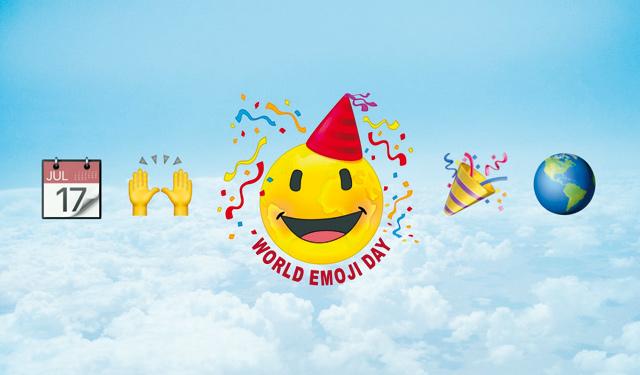- Local News
- Sun-2021-07-18 | 05:58 pm

Nayrouz News Agency :
On World Emoji Day, which is annually, marked on July 17, Jordanians of different ages and backgrounds expressed their views on the extremely popular emoji library.
"An emoji is a small digital image used to express an idea or emotion in e-mails, on the Internet, on social media”, as defined in the Oxford Learners Dictionaries. "The word emoji is a portmanteau that comes from two Japanese words: ‘e’ for picture and ‘moji’ for character,” according to the World Emoji Day Twitter account.
The Emoji debut was in Japan in the late 1990s.
In the absence of face-to-face communication amid the pandemic, emojis have become more widely used, Baraa Awad, a young Jordanian in the field of digital marketing, told The Jordan Times.
Emojis can be useful in a variety of situations, "such as to help us represent our feelings and to provide a deeper meaning in our writing”, Awad pointed out.
"Those small digital icons are an essential part of our everyday digital communication,” Awad said. She commented that many businesses, universities and companies, not just youth, are adopting emojis in their work.
The Oxford Dictionaries word of the year in 2015 was the "Face with Tears of Joy” emoji.
The Oxford Dictionaries announced that, "there were other strong contenders from a range of fields, but [the emoji] was chosen as the ‘word’ that best reflected the ethos, mood and preoccupations of 2015”.
"They are universal in nature, and thus they are widely incorporated in text messages, tweets, comments, blogs and all social networks,” Celina Varoqa, a digital expert, said, adding that emojis have been a staple of today’s texting culture.
Varoqa added that while each generation may have unique texting habits, emojis are a form of communication used by people of all ages.
According to Emojipedia, a website dedicated to providing up-to-date emoji information and the custodian of this global holiday, the most popular emojis are: The Blue Heart, Red Heart, Sparkles, Fire, Smiling Face with Smiling Eyes, Pleading Face, Face with Tears of Joy, Heart on Fire and Smiling Face with Hearts.
Emojis are expressive and emotional, said 18-year-old Omar Saad. They are just quicker, easier and more fun, he told The Jordan Times, adding that most youngsters opt for emojis.
When people speak face-to-face they are able to see each other’s facial expressions and body language, which allows for clear communication, Abu Hussein, a father of three, told The Jordan Times. Emojis allow people to enrich their virtual communication, adding "the missing parts” to writing, Abu Hussein said.
The negative side of emojis is that they periodically take on new meanings, which often creates a generational gap in their interpretation, he said. "A very simple emoji may have a whole new meaning among young people,” said Abu Hussein.









